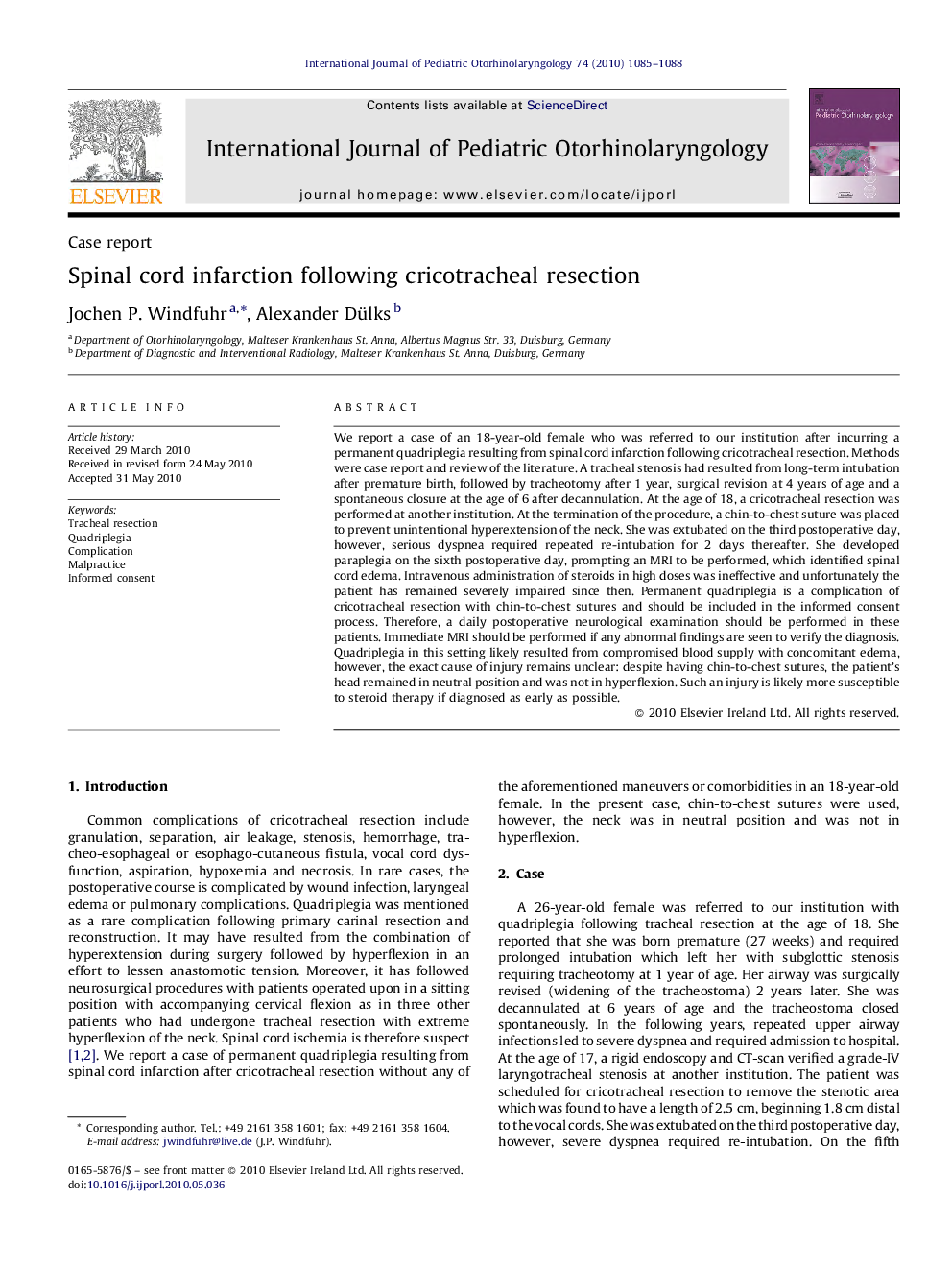| Article ID | Journal | Published Year | Pages | File Type |
|---|---|---|---|---|
| 4113945 | International Journal of Pediatric Otorhinolaryngology | 2010 | 4 Pages |
We report a case of an 18-year-old female who was referred to our institution after incurring a permanent quadriplegia resulting from spinal cord infarction following cricotracheal resection. Methods were case report and review of the literature. A tracheal stenosis had resulted from long-term intubation after premature birth, followed by tracheotomy after 1 year, surgical revision at 4 years of age and a spontaneous closure at the age of 6 after decannulation. At the age of 18, a cricotracheal resection was performed at another institution. At the termination of the procedure, a chin-to-chest suture was placed to prevent unintentional hyperextension of the neck. She was extubated on the third postoperative day, however, serious dyspnea required repeated re-intubation for 2 days thereafter. She developed paraplegia on the sixth postoperative day, prompting an MRI to be performed, which identified spinal cord edema. Intravenous administration of steroids in high doses was ineffective and unfortunately the patient has remained severely impaired since then. Permanent quadriplegia is a complication of cricotracheal resection with chin-to-chest sutures and should be included in the informed consent process. Therefore, a daily postoperative neurological examination should be performed in these patients. Immediate MRI should be performed if any abnormal findings are seen to verify the diagnosis. Quadriplegia in this setting likely resulted from compromised blood supply with concomitant edema, however, the exact cause of injury remains unclear: despite having chin-to-chest sutures, the patient's head remained in neutral position and was not in hyperflexion. Such an injury is likely more susceptible to steroid therapy if diagnosed as early as possible.
